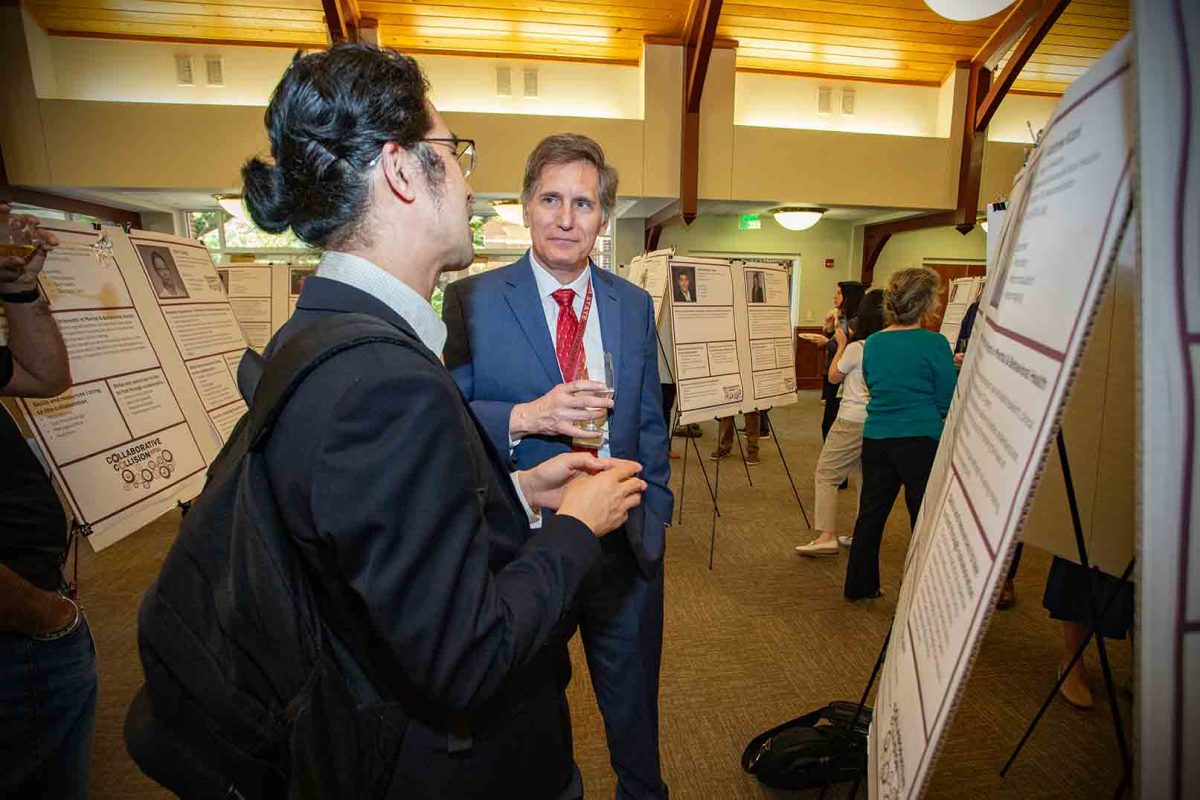
Florida State University researchers gathered Thursday to see how they could work together to better confront the massive challenges associated with mental and behavioral health care.
“As a public research university, we have a duty to give back to the state and country through our research,” said FSU Vice President for Research Stacey S. Patterson. “I don’t think it’s a surprise to anyone here that the U.S. is facing a growing mental health crisis. FSU has great strengths in this area, and it is our responsibility to use our resources and collective experience to contribute to the research and scholarship in this field.”
Nearly 100 researchers, graduate students and community partners engaged in mental health research gathered at the FSU Alumni Center through the Office of Research’s Collaborative Collision, an event specifically designed to bring researchers tackling different parts of an issue together for potential collaboration.
Data released earlier this year from the Substance Abuse and Mental Health Administration showed that 23 percent of U.S. adults faced a mental health condition in 2022. About 6 percent experienced a serious mental health condition, such as bipolar disorder, severe anxiety or an eating disorder that impaired functioning.
The federal government has also been putting more resources toward research in this area.
In February, the Department of Health and Human Services, through the Substance Abuse and Mental Health Services Administration, announced $36.9 million in funding opportunities for behavioral health services across the country. The department also expanded the pool of behavioral health providers eligible for Medicaid funding.
Dr. Andy Kozel, the Mina Jo Powell Endowed Chair in Neurological Sciences at the FSU College of Medicine, gave an overview of how far the field has come and some of the challenges facing the research community as they move forward with their work.
Researchers met in small groups and then moved around the room so they could talk with other faculty members working in complementary areas related to mental health.
Patterson noted that FSU’s deep bench of researchers in mental and behavioral health was one of the reasons that the university included it as part of the research strategic plan, ASPIRE. ASPIRE, or A Strategic Plan to Inspire Research Excellence, lays out areas of expertise that the university will build upon as it amplifies its research portfolio.
ASPIRE was released last month, and Collaborative Collision is part of the university’s implementation of that plan.
“Mental and behavioral health research represents a major opportunity for FSU to expand its research portfolio,” Patterson said. “There are so many areas that this could extend to — substance abuse, developmental disorders, prenatal care, non-invasive neuromodulation — and so much more. I hope you all will really think about big ideas and how you could collaborate with your colleagues here and across the country to move this important work forward.”




